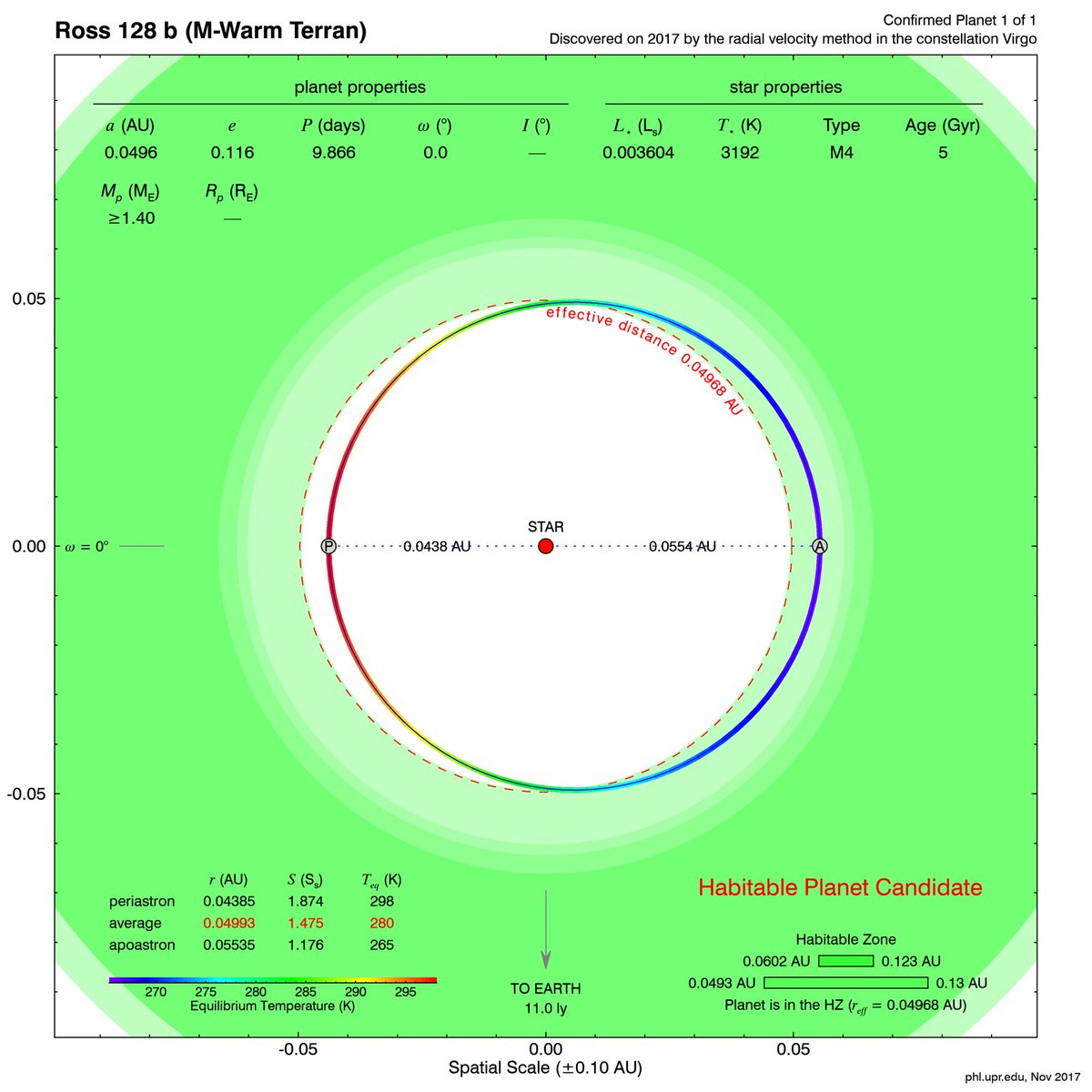VIRGO:
http://seti.berkeley.edu:8000/observations-of-ross-128/
Exciting news: the HARPS exoplanet hunter team have discovered a new, Earth-like exoplanet orbiting around the star Ross 128, one of our closest neighbors.
This newly discovered 'exo-Earth', designated Ross 128b, is particularly remarkable as it is thought to have surface temperatures similar to here on Earth.
Curiously, this is the second time this year Ross 128 has been in the news. In May 2017, an intriguing signal in the direction of Ross 128 was detected at
Arecibo. In July, we conducted follow-up observations with Green Bank Telescope and concluded that disappointingly, the signal was most likely due to radio
interference from a passing satellite. Our analysis has now been accepted for publication in the International Journal of Astrobiology; data from our
observations is available for download at
http://seti.berkeley.edu/ross128/.
Ross 128 was also observed over the 1.1-1.9 GHz band as part of Breakthrough Listen's nearby star survey. Again, we did not detect any signals of SETI interest.
These data are available online, and our analysis is detailed in the Astrophysical Journal (E. Enriquez et. al., 2017).
So sadly, we've already looked closely at Ross 128 and have come up empty. Nonetheless, as Ross 128b is such an exciting target, we are considering additional,
deeper observations at radio and optical wavelengths. Nearby exoplanets are particularly exciting from a SETI perspective as they permit us to search for and
potentially detect much weaker signals than from more distant targets.
